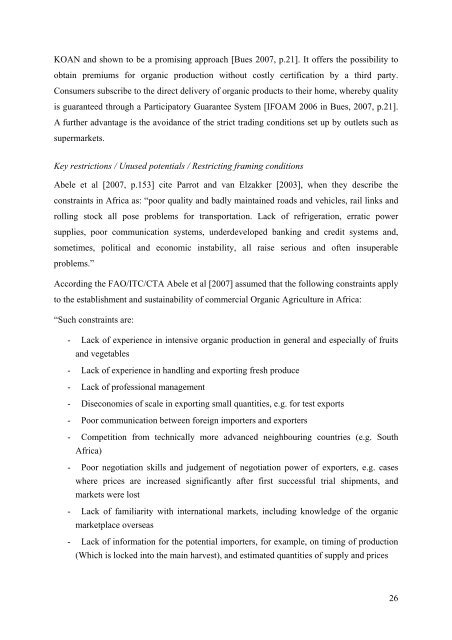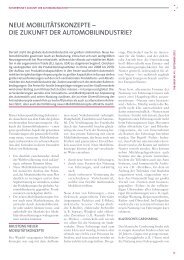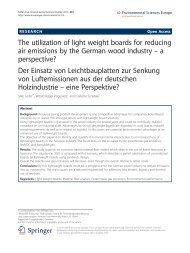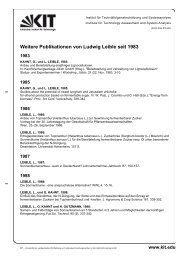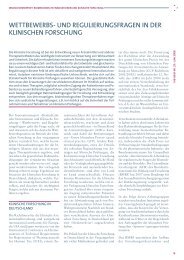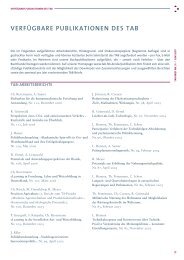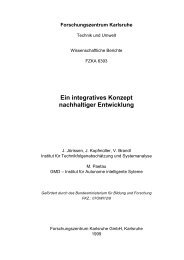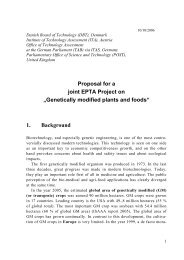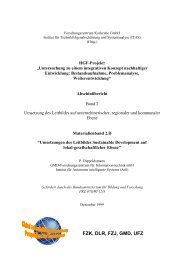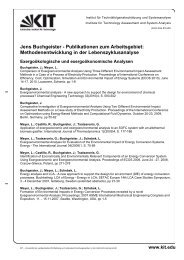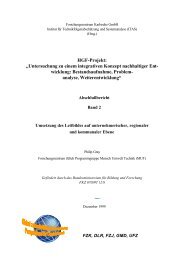Annex 4: Case study âOrganic Farmingâ - ITAS
Annex 4: Case study âOrganic Farmingâ - ITAS
Annex 4: Case study âOrganic Farmingâ - ITAS
You also want an ePaper? Increase the reach of your titles
YUMPU automatically turns print PDFs into web optimized ePapers that Google loves.
KOAN and shown to be a promising approach [Bues 2007, p.21]. It offers the possibility to<br />
obtain premiums for organic production without costly certification by a third party.<br />
Consumers subscribe to the direct delivery of organic products to their home, whereby quality<br />
is guaranteed through a Participatory Guarantee System [IFOAM 2006 in Bues, 2007, p.21].<br />
A further advantage is the avoidance of the strict trading conditions set up by outlets such as<br />
supermarkets.<br />
Key restrictions / Unused potentials / Restricting framing conditions<br />
Abele et al [2007, p.153] cite Parrot and van Elzakker [2003], when they describe the<br />
constraints in Africa as: “poor quality and badly maintained roads and vehicles, rail links and<br />
rolling stock all pose problems for transportation. Lack of refrigeration, erratic power<br />
supplies, poor communication systems, underdeveloped banking and credit systems and,<br />
sometimes, political and economic instability, all raise serious and often insuperable<br />
problems.”<br />
According the FAO/ITC/CTA Abele et al [2007] assumed that the following constraints apply<br />
to the establishment and sustainability of commercial Organic Agriculture in Africa:<br />
“Such constraints are:<br />
- Lack of experience in intensive organic production in general and especially of fruits<br />
and vegetables<br />
- Lack of experience in handling and exporting fresh produce<br />
- Lack of professional management<br />
- Diseconomies of scale in exporting small quantities, e.g. for test exports<br />
- Poor communication between foreign importers and exporters<br />
- Competition from technically more advanced neighbouring countries (e.g. South<br />
Africa)<br />
- Poor negotiation skills and judgement of negotiation power of exporters, e.g. cases<br />
where prices are increased significantly after first successful trial shipments, and<br />
markets were lost<br />
- Lack of familiarity with international markets, including knowledge of the organic<br />
marketplace overseas<br />
- Lack of information for the potential importers, for example, on timing of production<br />
(Which is locked into the main harvest), and estimated quantities of supply and prices<br />
26


